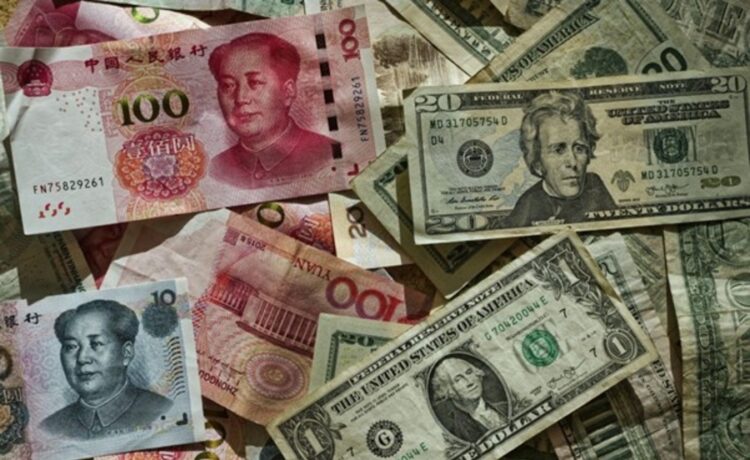Sponsored Post

Institutional quality, which refers to the effectiveness of a country’s legal, regulatory, and governance systems, is paramount in long-term economic development. Today, financial markets are often interconnected, so countries with better governance will attract higher levels of foreign direct investment, experience currency stability, and witness improved stock market performance. In this article, we cover how institutional quality in any country enhances the FDI, currency and stock market performance, especially as investors are seeking stability, predictability and protection of capital.
Importance of institutional quality
The government is in charge of economic exchange. Whether in capital markets, foreign investments, or property acquisition, the government controls all regulatory bodies, legal frameworks, and the rule of law, which determine investor sentiment.
Institutional quality shows investors that the economic playing field is fair, corruption is limited, and disputes will be resolved impartially. These assurances underpin every financial transaction. As for global investors, risk assessment should focus on macroeconomic indicators and institutional dynamics.
Two countries might have similar GDP growth or inflation rates, but the one with better governance attracts more stable and long-term investments. Whether you’re a forex trader or a real estate investor, understanding these dynamics is essential and aided by using reliable tools like TradingView Singapore.
How good governance attracts FDI

Foreign direct investment isn’t only about capital, technology transfer, management practices, and market access. Institutional quality enables FDI by reducing transaction costs, minimizing uncertainty, and improving investor protections.
When a multinational firm evaluates countries for investment, it focuses on those with reliable courts, property rights, clear taxation, low bureaucratic barriers, and stable political environments.
Countries with positive governance reforms, such as independent judiciaries and public sector accountability, will see a noticeable uptick in FDI inflows. For instance, Eastern European nations that became part of the European Union benefited from access to markets and reforms in institutional frameworks, dramatically improving FDI appeal.
Investors are more willing to build factories, distribution hubs, and real estate projects in a place with reliable governance. What’s more, real estate FDI is very sensitive to governance, as property ownership rights, zoning regulations, and transparent land titling are important elements of a government institution.
Government institutions boost confidence in currencies
Currencies are essential to national credibility. Institutional strength enhances a country’s monetary and fiscal stability, which are two factors that determine the quality of the currency. So, currencies backed by a strong government attract more forex investors.
Countries with high-quality institutions tend to maintain disciplined fiscal policy, inflation control, and monetary management, which increases foreign demand for domestic currency.
What’s more, when a government improves its institutions, it supports currency appreciation. For instance, when a government cracks down on corruption, tightens banking oversight, or reforms tax collection, it signals currency stability.
Moreover, capital inflows caused by improved governance create upward pressure on exchange rates. This is especially true when inflows are long-term, as with FDI or equity investment, rather than speculative. Countries like Singapore and Chile usually have stable currencies because of their institutional integrity.
Impact on stock market performance
Stock markets thrive on reliable government regulations. Institutional quality provides transparency, shareholder rights protection, and fair regulatory oversight, all of which contribute to the stock market. Investor participation broadens in the stock market when corporate governance standards improve through better reporting, board independence, or insider trading regulations.
Before allocating capital, international investors usually apply strict ESG (Environmental, Social, Governance) criteria. Weak institutions cause low market participation, high volatility, and greater valuation discounts. Meanwhile, markets with strong institutional support usually witness surges in foreign equity inflows and sustained bullish cycles.
Institutions affect valuation and performance. Markets with robust institutions enjoy more accurate price discovery, lower cost of capital, and better resource allocation, all of which drive long-term returns in the stock market.
Stable institutions attract real estate

Beyond stocks and forex, real estate is a significant long-term investment. However, property investment is susceptible to governmental trust. Land ownership, lease terms, title verification, tax stability, and zoning laws can attract or repel capital.
Institutional upgrades in land registry systems, legal enforcement, and municipal governance can create property booms, especially in emerging markets. Also, a predictable framework for acquiring, leasing, and developing real estate will encourage developers, REITs, and pension funds to enter the market. These favorable conditions and elements will then boost the real estate market and investor participation.
On the other hand, weak institutions often lead to informal property ownership, bribery, and sudden policy changes, all of which can deter capital.
Building better investments with improved governance
Investors always seek safety, transparency, reliability, and institutional quality for the security they need. Institutional quality shows the world and investors that a country is open for business. With improved governance, there’s more investment in equities, real estate, and domestic currency markets. Countries that are serious about attracting sustainable capital should prioritize governance reforms.





